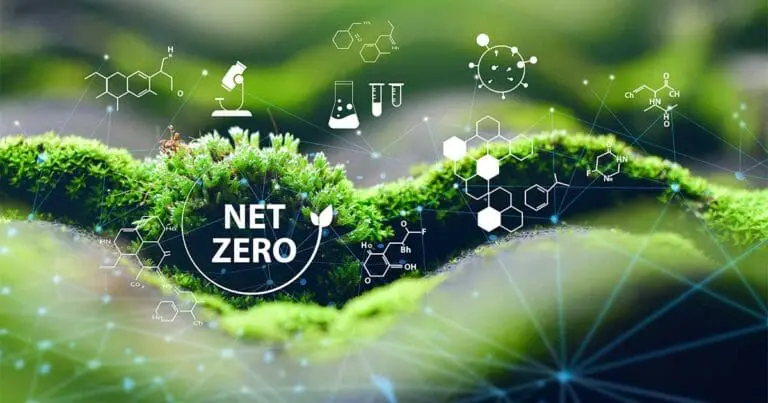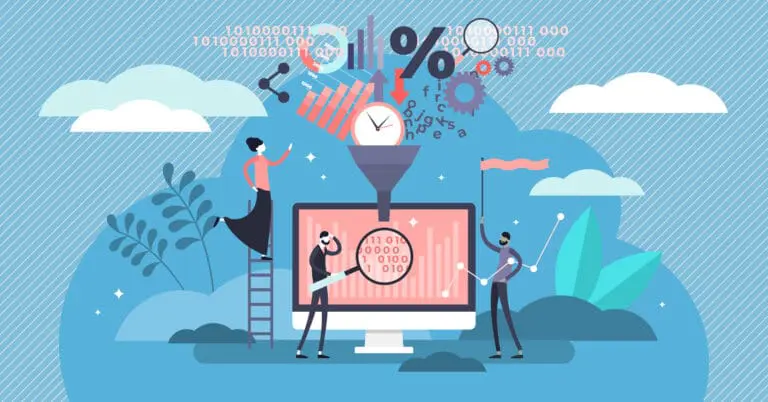Can AI Help You Find Love? Exploring the Role of Artificial Intelligence in Romance

Artificial Intelligence (AI) has rapidly become pervasive in our daily lives, revolutionizing industries by optimizing processes, personalizing experiences, and predicting future outcomes.
With its advanced algorithms and data processing capabilities, AI is now venturing into the personal realm, raising curiosity about its potential role in shaping romantic relationships.
There is a growing intrigue in how smart technology can enhance the matchmaking process, prompting the question of whether AI can lead people to compatible partners and help ignite the spark of love.
Delve into this captivating intersection of technology and emotion and explore the prospects of AI in the quest for romance.
The evolution of AI in personal relationships
The evolution of AI in personal relationships includes AI in matchmaking and dating apps as well as the transition from traditional to technological matchmaking.
AI in matchmaking and dating apps
AI’s infusion into matchmaking and dating apps has manifested through advanced algorithms that analyze user profiles, preferences, and interactions to suggest highly compatible potential partners. These smart-systems leverage data from social media activity, personality quizzes, and user behavior to refine their match suggestions over time, aiming to increase the likelihood of a successful connection. Furthermore, AI aids in detecting and minimizing fraudulent profiles, enhancing the safety and authenticity of the online dating experience.
From traditional to technological
The quest for love has evolved significantly over the centuries, transitioning from traditional matchmakers who would personally curate matches based on family and social connections to the digital age, where profiles and preferences are analyzed by algorithms.
Historically, these community matchmakers relied on their intricate understanding of personal backgrounds and societal structures to foster marital unions.
Today, algorithm-driven dating services synthesize vast amounts of data to suggest potential partners, a modern twist on age-old rituals of matchmaking.
AI matchmaking technology innovations
Machine learning algorithms within dating apps now analyze behavioral patterns, such as chat frequency and response times, to intuitively suggest matches that align with stated preferences and exhibit compatible communication styles.
Some platforms employ AI-powered facial recognition technology to propose potential partners based on physical attributes that users have previously preferred.
Additionally, AI-driven sentiment analysis on users’ messaging can help refine match compatibility by understanding emotional undertones, potentially leading to more profound connections.
How AI is changing the dating scene
AI is changing the dating scene with personalized matches, predictive analytics, and increasing success rates.
Personalized matches
By evaluating behavioral data, AI algorithms provide personalized match suggestions that carry a higher chance of compatibility.
By assessing patterns in communication style, interests, and activity levels, these systems can filter potential partners in a manner that surpasses the superficiality of swipe-based choices.
This approach tailors the dating experience to individual preferences and behaviors, creating a more curated path toward finding meaningful connections.
Predictive analytics
Predictive analytics in dating AI harnesses the power of machine learning to forecast relationship compatibility, turning patterns and tendencies from user data into accurate matches.
These smart-systems score potential couples for compatibility with greater precision by analyzing communication habits and preference evolutions.
This technology aims to reduce the randomness of dating by presenting users with choices that are statistically more likely to result in mutual satisfaction and long-term potential.
Success rates of dating apps
Studies have indicated that AI-driven dating apps can significantly improve user success rates by facilitating more relevant matches based on comprehensive data analysis.
Satisfaction among users seems to rise when AI systems successfully predict and propose partners who align with their implicit and explicit preferences.
However, the complexity of human relationships means that while AI can increase the chances of a compatible match, ultimate satisfaction in love remains a uniquely personal and subjective experience.
The pros of AI-assisted romance
The pros of AI-assisted romance include efficiency and convenience, enhanced compatibility, and less choice overload.
Efficiency and convenience
In an increasingly fast-paced world, AI matchmaking systems offer unmatched efficiency, enabling users to navigate potential matches quickly.
These intelligent systems streamline the search for romance by filtering out poor matches and highlighting those with shared interests and lifestyles.
The convenience of having such powerful assistance on-demand allows individuals to integrate their search for a partner seamlessly into their busy lives.
Enhanced compatibility
Enhanced compatibility is a standout feature where AI excels in predicting successful romantic relationships, particularly through deep learning algorithms.
By processing and learning from vast datasets of user information and interaction patterns, these algorithms uncover subtle preferences and non-obvious compatibility indicators.
As a result, people are presented with matches that promise a higher degree of resonance beyond what might be gleaned from surface-level profile information.
Less “choice overload”
AI’s role in curating matches significantly reduces the phenomenon known as “choice overload,” where too many options can lead to decision paralysis.
By employing sophisticated algorithms, AI eliminates the clutter of less suitable matches, presenting a more manageable selection of potential partners.
This tailored approach helps users focus on deepening connections with compatible individuals, streamlining the path to a meaningful relationship.
The cons of AI in the search for love
The cons of AI in the search for love include privacy concerns and data security, AI lacks human nuance, the AI echo chamber, and ethical considerations.
Privacy concerns and data security
Amidst the advancements in matchmaking technology, privacy concerns have become increasingly prevalent, as users must share intimate details and communication habits with dating platforms.
The collection and storage of such sensitive data pose significant security risks, with potential breaches exposing personal information to unauthorized parties.
Furthermore, the utilization of AI to make connections necessitates a delicate balance between improving user experience and safeguarding individual privacy rights.
AI lacks human nuance
Despite AI’s proficiency in pattern recognition and prediction, discerning the elusive spark of “chemistry” between two individuals remains a challenge for algorithms.
Human attraction is often influenced by intangible qualities and subconscious cues that AI may not fully comprehend or quantify.
Ultimately, while AI can suggest potentially compatible partners, it cannot yet simulate the complex emotional dynamics at play in human relationships.
The AI echo chamber
One potential downside to AI-driven matchmaking is the creation of “echo chambers,” where users are continuously matched with people who mirror their beliefs and behaviors.
This insularity may stunt personal growth and perpetuate underlying biases, as it minimizes exposure to diverse people and perspectives that enrich relationships and personal development.
Consequently, while seeking compatibility, it’s crucial to maintain a balance that encourages meeting partners who can challenge us and broaden our horizons.
Ethical considerations
The application of AI in dating raises ethical questions about the manipulation of emotions, where algorithms might create an illusion of compatibility or engineer interactions that could falsely intensify emotional responses.
Additionally, the commodification of personal relationships, as users become products to be algorithmically paired, challenges traditional notions of romance and interpersonal connection.
As this technology proliferates, the line between facilitating genuine human relationships and exploiting emotions for engagement becomes increasingly blurred, necessitating earnest ethical discussions.
AI and the future of romantic relationships
AI and the future of romantic relationships includes speculations of AI in personal matchmaking and AI fostering long-term relationships.
Speculations of AI in personal matchmaking
As AI continues to evolve, it is likely to become even more ingrained in the fabric of personal matchmaking, offering both matches and insights into relational dynamics.
The integration of virtual reality (VR) and augmented reality (AR) could redefine dating experiences, allowing individuals to engage in immersive simulations of common interests or potential real-world activities with a match before meeting in person.
AI might also shift from matchmaker to coach, leveraging insights from data to provide personalized advice on relationship-building skills and effective communication strategies.
Such advancements could potentially equip users with the tools for healthier, more fulfilling relationships, fostering a new era in the search for romantic partnerships.
AI fostering long-term relationships
Beyond the initial match, AI has the potential to nurture long-term relationships by offering continual, data-driven relationship guidance and support.
Tailored communication tips and conflict resolution strategies, derived from the analysis of successful long-term partnerships, could help couples navigate challenges.
Ultimately, AI could serve as a tool for sustained relationship enrichment, providing reminders and insights that promote understanding, patience, and growth between partners.
Can AI help you fall in love?
While AI excels at identifying patterns and preferences that might predict compatibility, love’s emotional depth transcends these quantifiable aspects.
The warmth of mutual affection, the exhilaration of shared laughter, and the peace of silent understanding are nuanced interactions that AI cannot manufacture.
AI, however, could act as a catalyst, introducing individuals who might not otherwise meet but have the potential for a profound emotional bond.
Yet, the development of a deep emotional connection relies on uniquely human interactions and experiences that algorithms cannot replicate or fully understand…yet.
While AI can set the stage for love, the emotional crescendo of falling in love remains a distinctly human experience.
Love and AI
AI holds the potential to revolutionize the search for romantic partners by using sophisticated algorithms to simplify the matchmaking process and enhance compatibility.
However, concerns such as privacy issues, the lack of human nuance, and the risk of creating echo chambers highlight the complexities involved.
Despite AI’s ability to predict compatibility, forming meaningful relationships still requires human judgment and emotional intelligence, which machines cannot mimic.
Artificial intelligence can assist in the journey by introducing people with potential chemistry, but it cannot replace the irreplaceable human connection.
In the quest for love, AI is best viewed as a supportive tool that complements human interaction, not a standalone solution.
Looking to hire top-tier Tech, Digital Marketing, or Creative Talent? We can help.
Every year, Mondo helps to fill over 2,000 open positions nationwide.
More articles about top industry salaries and trends:
- The EU Digital Services Act: Impact and Implications
- How To Future-Proof Your Business Through Skills-Based Hiring
- Redefining Economic Health and Progress: Implications for Staffing in 2024
- The Asia Link Cable Project: Transforming the Tech and IT Job Landscape
- The ICT Investment Surge: Transforming Key Sectors and Job Markets
- Beyond the Hype: The Current State of Generative AI and its Hurdles
- Why Emotional Intelligence in Leadership is a Must-Have in 2024
- Tips to Leverage Your Onboarding Process for Employee Retention
- Nuclear Fusion and Its Impact on the Job Market
- The Difference Between Problem-Spotting and Problem-Solving
- 15 Remote Tech Jobs With the Highest Salaries
- Highest Paid Social Media Jobs & Top Salaries
- 10 Tech Jobs That Saw the Highest Salary Growth This Year
- Highest Paid Data Science Roles & Top Salaries



